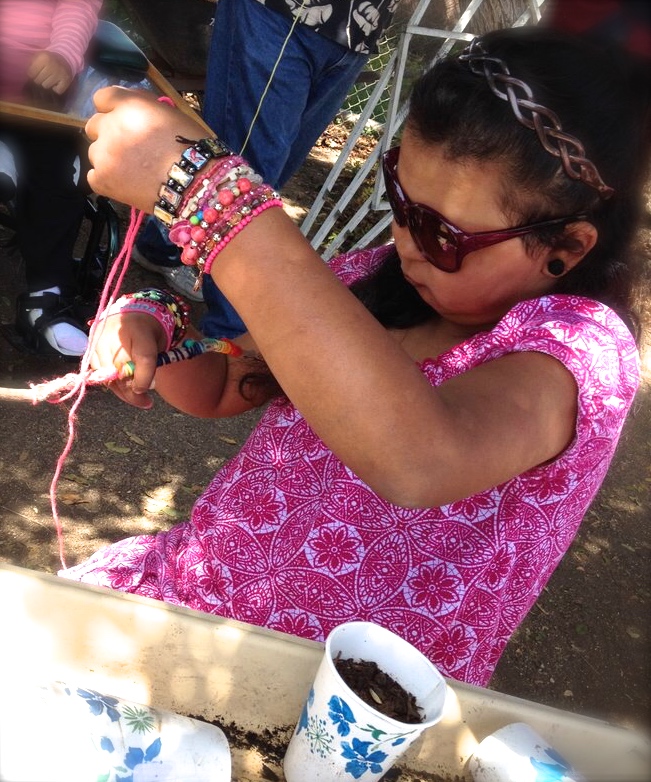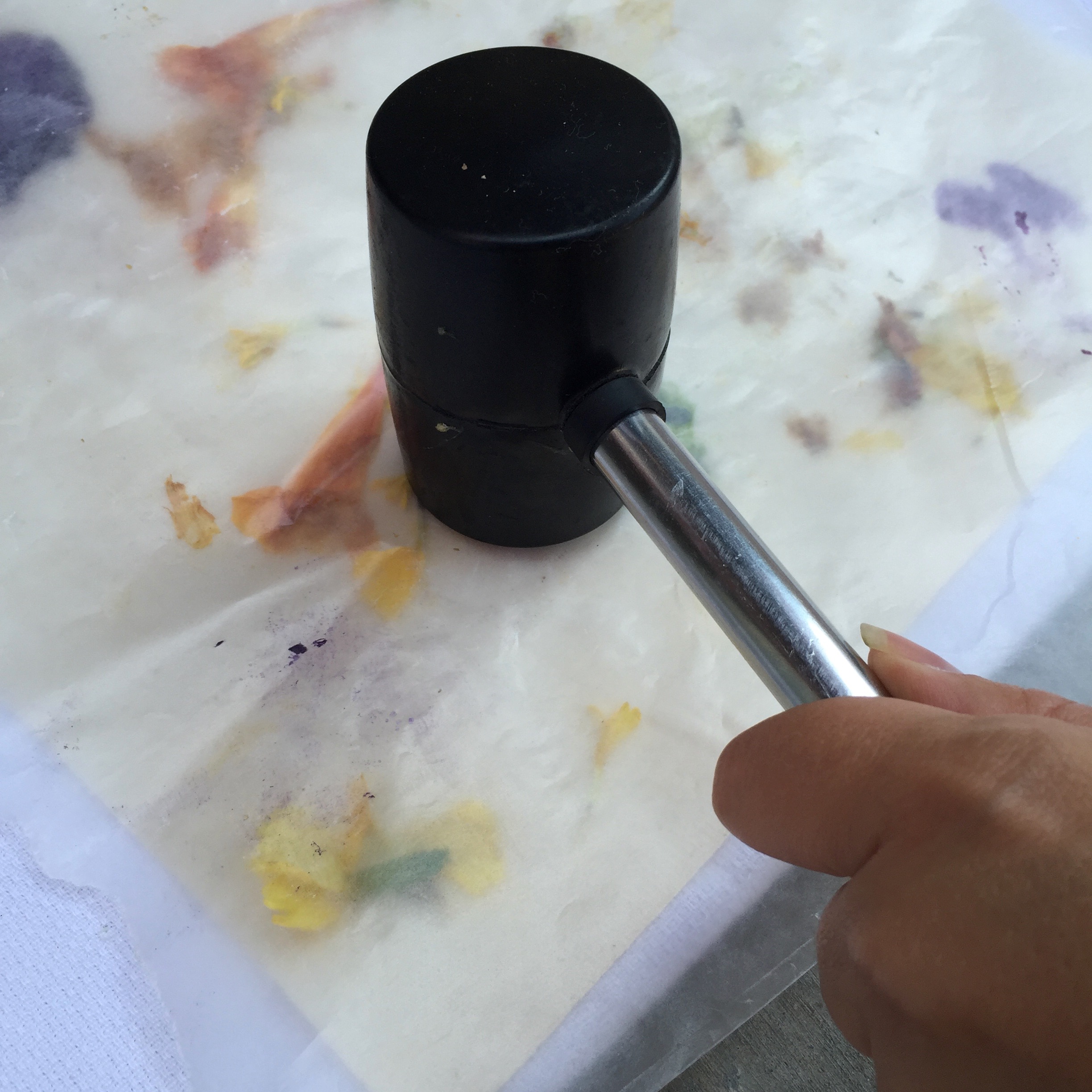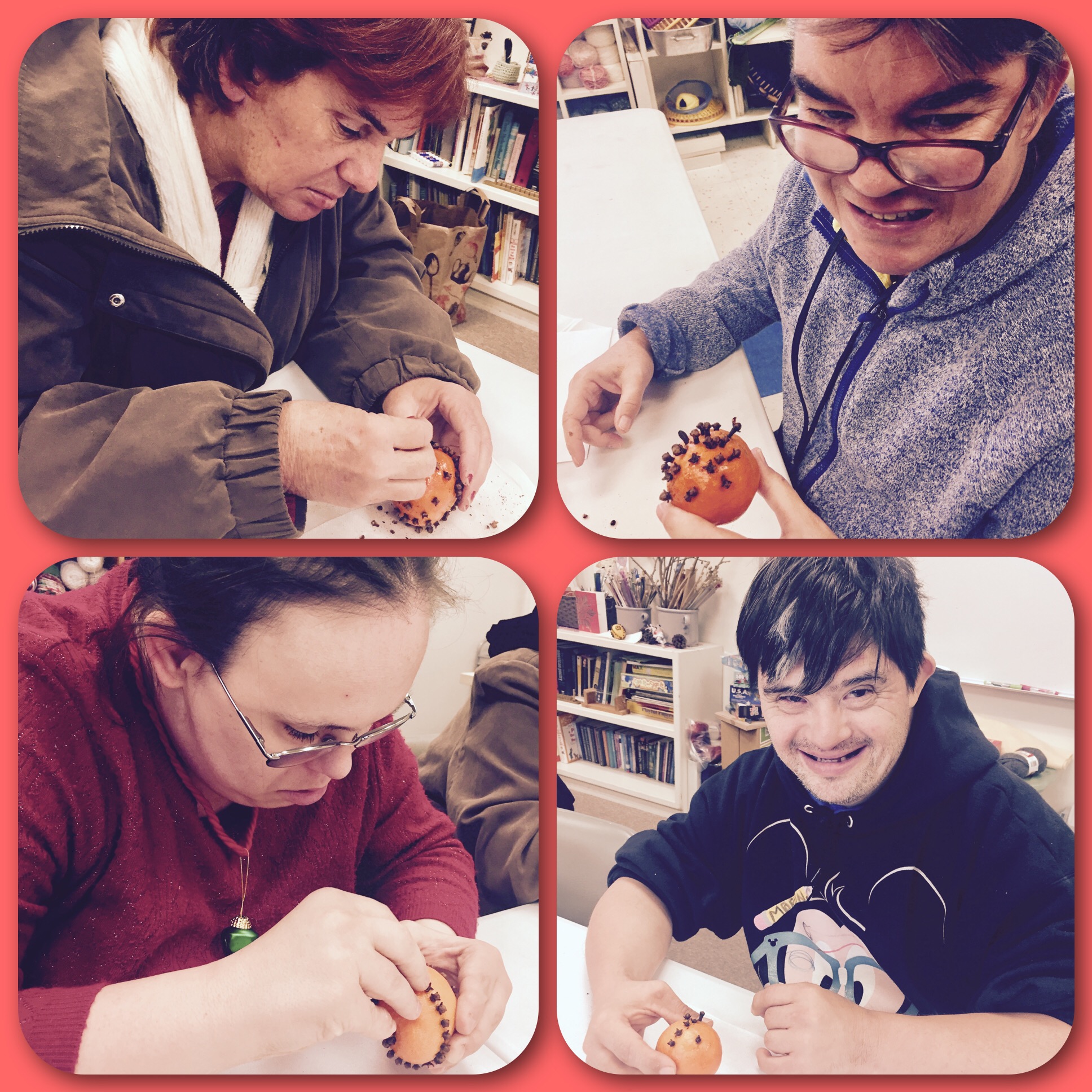Supportive Horticulture can provide many activities to create an atmosphere of inclusion. Participants of all levels will be provided with several ways to enjoy the garden either passively or actively. Of course actively gardening is the main focus of the Supportive Garden and many aspects can be adapted to fit the varying needs of abilities. Supportive Horticulture also opens many doors to other options for creating and participating in the garden environment.
Built in activities can include a 'sound wall' where clients can 'play music' or enjoy the tactile stimulations of vibration on items attached to a wall or post such as pots, pans, plastic bowls and colanders. This can be made to be loud or soft depending on the sensitivities of the clients. Outdoor weaving looms can be created on trees or made mobile for more participatory options. Items woven in can be fiber, yarn, fabric, leaves, branches or other items found in or around the Supportive Garden. Tic-Tac-Toe boards can be imbedded in the ground or on a rolling table to be played with painted rocks or other items found in the garden. Game board tables can be installed, crafting areas and places for quiet reflection can all be included in the activities of the garden, creating useful space for those not actively participating in the garden.
There are many Supportive Horticulture projects that can be provided for the clients that include items from or grown in the garden. Cooking and flower arranging, natural dyes, seed sprouting and growing, propagation, bird feeding/feeders, bird watching and identification and holiday crafting. Horticulture can be integrated into the curriculum with worksheets, experiments and lesson plans for every level. Job skills, time telling, focus, decision making and cooperation are all exercised in the garden. Many activities can be brought indoors so even those who may not be able to venture into the garden space can participate in Supportive Horticultural activities indoors.
There are activities tailored specifically for emotional and personal process aids in a safe and tranquil space. Care taking, ability exploration, self esteem building, emotional exploration and identification, impermanence and stability, seasonal recognition are just a few of the supportive opportunities available in the garden.
Supportive Horticultural s a wide and varied modality with activities that can be tailored to fit many populations.



